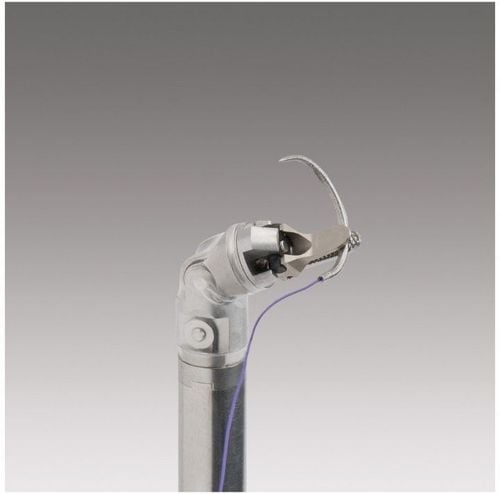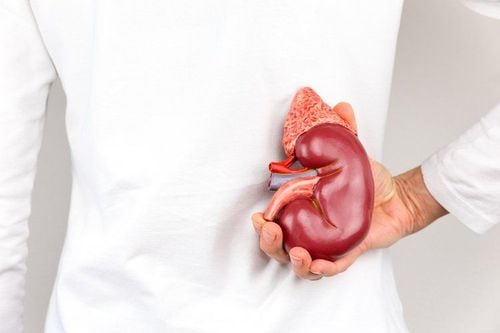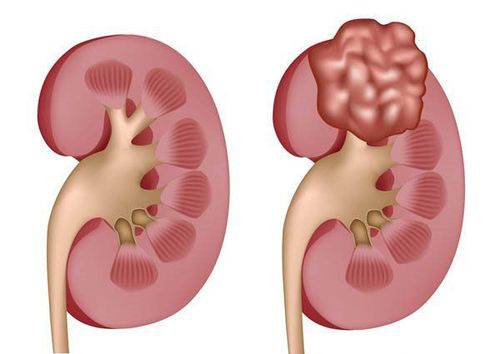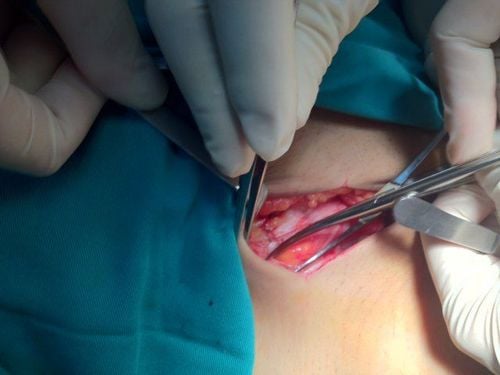This is an automatically translated article.
The article is professionally consulted by Doctor, Dr. Do Minh Hung - Department of General Surgery - Vinmec Central Park International General HospitalPatients with early diagnosis of abdominal wall hernia and timely intervention will contribute to improving treatment efficiency and quickly recovering health, reducing the risk of complications.
1. What is abdominal wall hernia?
Abdominal wall hernia is a disease caused by the movement of visceral organs from the abdominal cavity to the outside of the abdominal wall through a weak spot (maybe an old incision or where the abdominal wall has no muscle layer). This can be a birth defect that occurs in the baby while still in the womb, most premature babies will have a hernia of the abdominal wall.Abdominal wall hernia occurs when the muscles of the abdominal wall are weakened or open, causing a protrusion on the patient's abdomen, when the muscles of the abdominal wall are stretched, it will increase the pressure in the abdominal cavity and making the protruding mass caused by the abdominal wall hernia become larger and more obvious.
Based on clinical symptoms and causes, abdominal wall hernia is divided into several types including:
Anterior abdominal wall hernia (umbilical hernia; epigastric hernia, Spigelian hernia); Incisional hernia; Artificial para-anal hernia dorsal hernia (triangular hernia of the upper back; hernia of the triangle of the lower back); Pelvic hernia; Obturator hernia; Hernia of the seat; Perineal hernia; Inguinal - thigh hernia...
2. Symptoms of abdominal wall hernia
Abdominal wall hernia in both children and adults can cause the following symptoms:On the abdominal wall or groin, a bulging tumor appears (appears when walking, moving, disappearing when lying or pressing) ; There is a feeling of pain, pressure; Limiting mobility; Causes cosmetic problems. Abdominal wall hernia, if not promptly intervened and treated, can cause many dangerous complications such as mesenteric necrosis or intestinal necrosis.
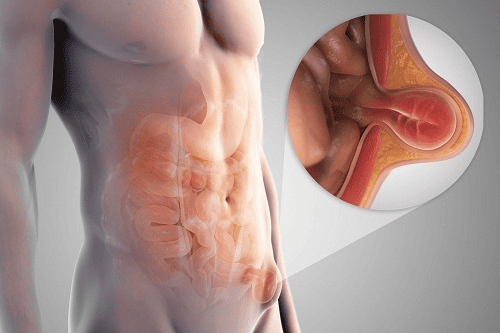
Bệnh thoát vị thành bụng xảy ra khi cơ của thành bụng bị suy yếu hoặc hở
3. Causes of congenital abdominal wall hernia
Abdominal wall hernia in children is a rare birth defect that can occur in both men and women, from the time the baby is in the womb. Until now, scientists have not found the exact cause of this condition. However, it may be due to changes in genes or hormones of the fetus or because the mother during pregnancy has been exposed to environmental agents, food, drinks and therapeutic drugs...According to statistics, the proportion of children with umbilical hernia accounts for 1/1,500 - 13,000 cases, this condition will be more common if women under the age of 20 become pregnant. Some other factors that can increase the risk of abdominal wall hernias in children include:
Due to the mother's early pregnancy: Teenage pregnancy increases the risk of preterm delivery and congenital abdominal wall hernia in children; Due to the habit of using food and drinks containing alcohol during pregnancy; A mother who has a habit of using tobacco increases the risk of having a baby with a congenital abdominal wall hernia.
4. How to treat abdominal wall hernia?
Abdominal wall hernia is a disease that can be diagnosed early in life or during pregnancy. The doctor will use ultrasound to check if the baby has a congenital abdominal wall hernia.Depending on different types of hernia, different surgical methods are used to treat abdominal wall hernias, both open or laparoscopic. However, at present, laparoscopic hernia surgery is a fairly common method, because it can be applied at any location and reduces the risk of hernia recurrence, while helping patients reduce pain. during treatment.
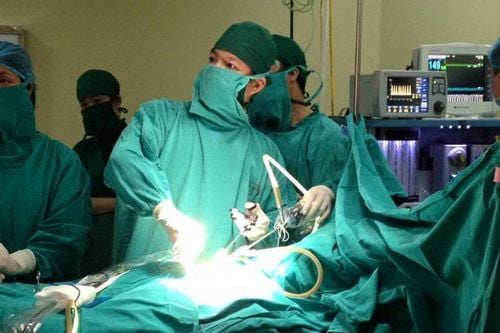
Phẫu thuật nội soi thoát vị thành bụng giúp bệnh nhân giảm bớt đau đớn
Techniques performed by Dr. Do Minh Hung, Head of General Surgery, Vinmec Central Park International General Hospital. Dr. Hung has nearly 25 years of experience in the field of General Surgery, conducted dozens of valuable scientific research works and published many unique surgical techniques that bring positive treatment effects.
In addition, Vinmec Central Park has a Hybrid operating room, which is the most modern operating room system in the world today with the integration of the operating room and advanced imaging facilities such as CT scan, magnetic resonance imaging (MRI). ultrasound ... helps to reduce the time after surgery and bring the best surgical effect to the patient.
Please dial HOTLINE for more information or register for an appointment HERE. Download MyVinmec app to make appointments faster and to manage your bookings easily.




